Marie-Jeanne Blain
Senior Researcher, IRMS
Affiliate Assistant Professor, Department of Sociology and Anthropology
Contact: mariejeanne.blain@concordia.ca
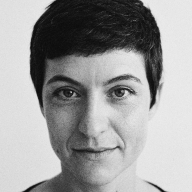

Marie-Jeanne Blain
Senior Researcher, IRMS
Affiliate Assistant Professor, Department of Sociology and Anthropology
Contact: mariejeanne.blain@concordia.ca
Marie-Jeanne Blain, a social anthropologist graduated from the University of Montreal, has been carrying out research for more than ten years on the inclusion of immigrants and refugees in Quebec, particularly the processes of socio-professional integration. Her research themes focus on the professional aspirations of migrants of different immigration statuses, their support resources, and the implementation of policies and programs in this field. Carrying a dynamic vision of inclusion, she is equally interested in the experiences of migrants themselves, but also in those of speakers or professionals accompanying them as well as decision-makers and employers for example. She favors action research which allows the taking into account of different knowledge and perspectives, which promotes the mobilization of knowledge and guides public action.
For full list of publications, visit Marie-Jeanne's website.

Mylène Coderre
Senior Researcher, IRMS
Affiliate Assistant Professor, Department of Political Science
Contact: mylene.coderre@concordia.ca
Mylene Coderre is a senior researcher at IRMS and an affiliate assistant professor in the Department of Political Science at Concordia University. She is also a research affiliate with Bridging Divides and the Réseau québécois de la recherche en immigration, intégration et relations interculturelles (RQ3i). Her research explores the evolution and dynamics of temporary migration in Canada, with a focus on the role of non-state actors in shaping migrant workers’ experiences and trajectories. She collaborates on several interdisciplinary projects examining the intersections of politics, technology, work, and precarity in the context of immigration. Before joining IRMS, she served as a scientific advisor on migration and occupational health at the National Public Health Institute of Quebec. She holds a PhD in International Development from the University of Ottawa.
For full list of publications, visit Mylène's website.

Maxime Coulombe
Senior Researcher
Contact: maxime.coulombe@concordia.ca
Maxime Coulombe is a Research Associate at Concordia University and a research associate at IRSM and for Bridging Divides: Immigrant Integration in the 21st Century. He earned a Ph.D. in political science from the Université de Montréal (2023) and held a postdoctoral position at the University of Western Ontario. His research lies at the intersection of political behaviour, social psychology, and comparative politics, with a keen interest in elections, political participation, social norms, and the integration of immigrants into society. Currently, his research program examines public opinion on immigration, the effectiveness of public policies on integration, and immigrants’ political attitudes and behaviors before and after immigration.
For full list of publications, visit Maxime's website.

Capucine Coustere
Postdoctoral Fellow
Contact: capucine.coustere@concordia.ca
Capucine Coustere has been a postdoctoral researcher at IRMS since fall 2024, affiliated with the Bridging Divides project and an associate member of CELAT. She holds a PhD in sociology (Laval University, 2024) and a master's degree in political science (Institut d'Études Politiques de Strasbourg, 2014). Her research focuses on migration governance and its effects on migrants, as well as privileged and young migrants.
At IRMS, she examines how the digital platform used by the federal immigration department affects migration governance from the perspective of immigration lawyers. Her work also addresses the effect of migration status on the experiences and trajectories of migrants (transition to permanent residence, work, studies, family, etc.) in Quebec and Canada. Finally, with the Planche la recherche collective, she is pursuing a project on the alliances between comics and social sciences.
For full list of publications, visit Capucine's website.

Émile Baril
Postdoctoral Fellow
Contact: emile.baril@concordia.ca
Émile Baril is a Postdoctoral Researcher at the Institute for Research on Migration and Society (IRMS) at Concordia University. Prior to joining IRMS, Émile carried out research at York University, where he earned his PhD in critical human geography. His research examines the intersections of migration, urban labour, and the platform economy, with a focus on the working conditions of migrant workers in industries such as food delivery and trucking. He has previously collaborated with Toronto Metropolitan University’s CERC Migration and Integration and the Institut national de la recherche scientifique (INRS) in Montreal.
For full list of publications, visit Émile's website.

Gwénaëlle André
Postdoctoral Fellow
Contact: gwenaelle.andre@concordia.ca
Gwénaëlle André is a postdoctoral researcher at the Institute for Research on Migration and Society (IRMS) at Concordia University (Montreal, Canada). She holds a PhD in Education from Simon Fraser University (2024). Her research explores the relationship between immigration and digital literacies. This perspective on digital phenomena invites a questioning of both individual and collective processes, as well as consideration of the mode of existence of digital objects. Her work focuses on people with immigrant backgrounds and their use of digital technologies in social, cultural, educational, and political contexts.
She has also contributed to various research projects examining the socio-professional integration of visible minority students and teachers in francophone minority settings.

Momoka Watanabe (Sunohara)
Postdoctoral Fellow
Contact: momoka.watanabe@concordia.ca
Momoka earned her PhD in Cultural Psychology at Concordia University (Montréal) and is originally from Japan. Her research focuses on culture and mental health. As a postdoctoral fellow at IRMS, she studies diverse immigrant communities in Québec, examining how identity, language, and digital technology shape belonging, well-being, and health.
Her current projects explore cross-cultural variation in beliefs about mental illness (Japan–Canada); mental health experiences and service needs of Japanese immigrants in Canada—including culturally responsive care and Morita therapy; retention of anglophone psychotherapists in Québec; development of a participant diversity index; and mental health needs of underrepresented minority students.
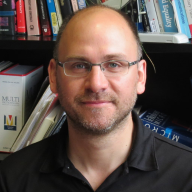

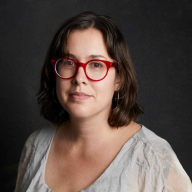


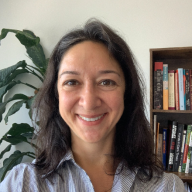
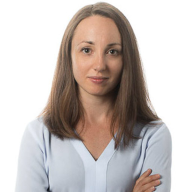



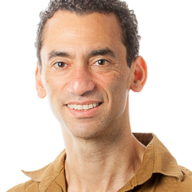

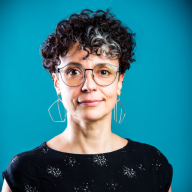


Kassandre Thériault
Lead, strategic development and operations
Contact: kassandre.theriault@concordia.ca
Kassandre graduated from the University of Montreal with an MA in Anthropology where her SSHRC funded research focused on religion and youth in diaspora. After working in research for the University of Montréal, l’Université du Québec en Abitibi-Témiscamingue on questions of immigration and integration in Canada, she worked at the City of Montreal’s Newcomer Office. More recently, Kassandre worked in project management and project evaluation in France and Pakistan. Passionate about questions of displacement and cultural integration, she now works as Coordinator for the Institute for Research on Immigration and Society (IRMS) at Concordia University.

Samiha Quddus
Communications coordinator
Contact: samiha.quddus@concordia.ca
Samiha holds a degree in Community, Public Affairs and Policy Studies from Concordia University and brings over three years of experience in administration and communications within the community sector.
At IRMS, she will lead communications efforts to amplify the institute’s multidisciplinary research on migration and social transformation. With a strong background in outreach and event coordination, Samiha will help us engage diverse audiences and foster knowledge sharing across our networks.

Nadya Zezyulina
Researcher/student
Nadya Zezyulina is a distinguished fellow at Concordia University's research chair on the politics of immigration and a research assistant for the "Migrant Integration in the Mid-21st Century: Bridging Divides" project. She earned a bachelor's degree in business management from Samara State University and further pursued her passion for societal issues by obtaining a Psychology degree, with a minor in Immigration Studies, from Concordia University. Nadya is a recipient of a research fellowship Migrant Integration in the Mid-21st Century: Bridging Divides awarded by Concordia’s Department of Political Science.

Sivakamy Thayaalan
Student
Sivakamy Thayaalan is a PhD student in the Department of Political Science at Concordia University studying sanctuary city policies and the experiences of undocumented migrants in Canada under the supervision of Dr. Mireille Paquet. Previously, she has worked in programmatic roles in international non-profit organizations such as War Child Canada and as a research assistant at York University conducting research on topics related to forced migration and disaster recovery.

Thomas Reynolds
Student
Thomas Reynolds is a master's student in the Department of Political Science at Concordia University. Working under Dr. Mireille Paquet, he is studying food insecurity within refugee populations in Canada. Thomas looks forward to integrating his experience working in the food industry into his research, providing a unique perspective. From Portland, Oregon, Thomas obtained his bachelor's degree in political science from the University of Oregon, focusing on political theory and legal systems. He is the recipient of the Steven Goldberg Entrance Bursary and Campaign for a New Millennium Student Contribution Graduate Scholarship. In addition to his studies, Thomas works as a Teaching Assistant and a Research Assistant at Concordia University.

Brianna Losinger-Ross
Student
Brianna Losinger-Ross is an MA student in the Department of Journalism at Concordia University. Having completed a minor in Immigration Studies during her undergrad, she has always been interested in Quebec and Canadian immigration, with a particular focus on the media’s role in public perception. She is currently working as a research assistant, researching topics related to how immigration is discussed in Canadian parliament and its evolution over time.

Hannah Lazarus
Student
Hannah Lazarus, a recent graduate of Concordia University with a Bachelor's in Political Science and a minor in Human Rights, is currently doing Master’s studies in Public Policy and Public Administration at the same institution. Her international experience at Sciences Po Aix in Aix-en-Provence provided valuable insights into political issues from a European perspective. Having worked in a senior position at a Jewish community center for two years, she is looking forward to integrating her communication and collaboration skills in her role as a research assistant.

Juliana Tinoco Sampedro
Student
Juliana Tinoco is an MA student in Political Science at Concordia University, specializing in migration. She holds a BA in International Development from McGill University, with double minors in Sociology and Communications. Her research focuses on integration policies in Canada, with particular attention to the aspirations of economic migrants and how these intersect or clash with government expectations around qualifications, labour, and belonging. She is currently a Research Assistant with the Institute for Research on Migration and Society (IRMS), collaborating with postdoctoral fellow Émile Baril on research examining migrant labour and working conditions in the Canadian truck driving industry.

Isabella Fiore
Student
Isabella Fiore is a master's student in the Department of Political Science at Concordia University studying political discourses around immigration in Canadian politics. Isabella obtained her undergraduate degree from the University of Ottawa in political science and gender studies; she looks forward to applying her intersectional academic perspective to migration scholarship throughout her graduate studies. Isabella is a recipient of a research fellowship in "Migrant Integration in the Mid-21st Century: Bridging Divides", awarded by the Department of Political Science at Concordia University.

Charles-Olivier L’Homme
Student
Charles-Olivier L’Homme is a PhD student in the Department of Political Science at Concordia University, where he studies migration diplomacy from an international relations perspective. He holds a dual MA from UQAM and Sciences Po Grenoble, where he specialized in Middle Eastern and Mediterranean dynamics. His doctoral research examines Turkey’s use of the Syrian crisis as a leverage tool in its relations with the European Union, under the supervision of Mireille Paquet. He is also a contributor to the CFREF project "Migrant Integration in the Mid-21st Century: Bridging Divides."

Alicia Fortier-Leblanc
Student
Alicia Fortier-Leblanc is a PhD student in the Department of Political Science at Concordia University under the supervision of Dr. Mireille Paquet. Her research examines how the precarious legal status of temporary immigrants shapes their trust in political institutions in Quebec and Canada. She holds a B.A. in Communication and Politics from Université de Montréal and an M.A. in Applied Politics from Université de Sherbrooke, during which she completed an internship at the Ministère des Relations internationales et de la Francophonie of Quebec on issues of international student mobility. She has also worked as a facilitator in the francization and integration program at the Université du Québec à Montréal.

Celia Bensiali-Hadaud
Student
Celia Bensiali (she/her) is a PhD student in Political Science at Concordia University. Her research examines how sanctuary cities in Canada and Europe design inclusive policies and mobilize transnational networks to advance rights and social inclusion amid increasingly restrictive migration regimes.
Celia’s broader work explores the evolving architectures of urban governance, territorial justice, and the multilevel dynamics of policy implementation. Her doctoral project builds on extensive professional and research experience bridging academia and public administration. Before starting her PhD, she worked at the City of Montreal’s Service for Diversity and Social Inclusion, where she contributed to initiatives addressing housing insecurity and the inclusion of unhoused populations. She also collaborated as both researcher and coordinator within the international network TRYSPACES, leading interdisciplinary teams on youth and migrant participation in urban public life.
Her work combines an intersectional and critical approach at the crossroads of political science, urban studies, and migration policy. She is the recipient of the SSHRC Doctoral Fellowship (2025–2028), the Bridging Divides Fellowship (2024–2025), the ERIQA Research Grant (2024–2025), as well as the Concordia University Merit Scholarship (2024–2025).

Jocelyne Brad
Student
Jocelyne Brad is a PhD student in the Department of Political Science at Concordia University studying explainable AI and its implementation in immigration policy under the supervision of Dr. Mireille Paquet. She holds a BA from Saint Joseph’s University in Philadelphia, Pennsylvania where she studied International Relations and French and Francophone studies. Alongside her studies, she works as a Research Assistant exploring explainability in immigration policy and digital platform transformation and works as a Teaching Assistant.

Benjamin Astorga
Alumni
Benjamin Astorga is an Honours student in Pure and Applied Mathematics at Concordia University and a national level gymnast training at the Olympic Training Centre. His Honors project focused on studying a generalization of derivates, called proximal sub-gradients. He has also founded a gymnastics software start-up called Gym Art, focused on bringing accessibility to the sport. It has tools ranging from automatically calculating the start value of a gymnastics routine, to reducing the time to organize a gymnastics event from hours to seconds and mathematically ensure the quality of experience of the athletes, coaches and judges.

Estefania Perez
Alumni
Estefania Perez completed a MA degree in the Department of Political Science at Concordia University, studying immigrant influencers' role in shaping migration choices under the supervision of Dr. Mireille Paquet.
© Concordia University